The chorus, Usher's Thoughts, calls Usher's name many times. Usher, working as an usher for The Lion King, tells the audience what the show will entail. Usher wonders how he should write A Strange Loop to represent what it's like to "travel the world in a fat, Black, queer body" ("Intermission Song").
After work, Usher plans "to change this show for the better". Usher wants to change himself, but his Thoughts, full of self-loathing and worry, are too disruptive ("Today"). His mother calls to ask "what's going on in life" and reminds him how hard she and his father worked to raise him. She requests that Usher write a Tyler Perry-style gospel play in return ("We Wanna Know").
Usher wishes he could act more like his "inner white girl" but is held back by expectations put on Black boys ("Inner White Girl"). Usher's Thoughts criticize "Inner White Girl" and the show, claiming the main character should have more sex appeal and telling him to add elements of "slavery or police violence so that the allies in the audience have something 'intersectional' to hold onto".
Usher’s father leaves a voicemail saying that he found Scott Rudin’s number online. Because Usher has student loans to pay off, his father urges him to leverage their common sexuality to make a connection, despite not condoning homosexuality ("Didn't Want Nothin'").
At a medical checkup, Usher's doctor inquires about Usher's sex life and prescribes him Truvada, pressuring Usher to have more sex. Usher "enters the sexual marketplace" through various gay dating apps but is rejected for being "too Black, too fat, too feminine," and for having a small dick. Usher rages against the ways in which the gay community is also discriminatory ("Exile In Gayville").
A stranger on a train asks what Usher is writing. Usher explains that "A Strange Loop" is a cognitive science term about how "your ability to conceive of yourself as an 'I' is ... an illusion. But the fact that you can recognize the illusion proves it exists." The stranger introduces himself as Joshlet, and the two flirt before Joshlet reveals that he's a figment of Usher's imagination. Joshlet dismisses Usher, who sings about how "the second-wave feminist in is at war with the dick-sucking Black gay man" ("Second Wave").
Usher's agent informs him that Tyler Perry is seeking a ghostwriter for a gospel play, but Usher has a low opinion of Perry’s work. Appearing as famous Black figures such as Harriet Tubman, Carter G Woodson, James Baldwin, Zora Neale Hurston, and Whitney Houston, his Thoughts accuse him of being a race traitor and persuade him to take the job for "for the money. And Mom. And Dad. And the ancestors" ("Tyler Perry Writes Real Life"). Usher writes the play, acting out all the characters as caricatures ("Writing a Gospel Play").
Back at work, Usher tells a patron he can't continue the show without confronting his parents with his artistic self. The patron advises him to live his life without fear ("A Sympathetic Ear"). Usher's father calls to ask if he has HIV like his cousin Darnell had. The rest of his family appears, and the call quickly devolves. His mother asks where her gospel play is.
Usher hooks up with a white man, Inwood Daddy, who fetishizes him and calls him racial slurs ("Inwood Daddy"). After Usher leaves, he questions where his boundaries are ("Boundaries").
His mother leaves a voicemail wishing him a happy birthday, also telling him homosexuality is a sin ("Periodically"). His father calls to tell him their church community doesn't approve of his music ("Didn’t Want Nothin' (reprise)"). Usher's parents argue with him over his homosexuality and worry he might catch AIDS before Usher explodes about how his upbringing, repressed sexuality, and lack of support from his father hurt him. Usher and his mother fight about her portraya in the play, and she accuses Usher of hating and disappointing her.
The set transforms into a gospel play with Usher as a church pastor and the Thoughts as a choir. Usher recalls how Darnell, thinking he deserved to die for his sins, refused HIV medication in the hospital. Usher realizes "the only thing worse than dying of AIDS would be living with it and hearing the people you loved say 'I told you so.'" Usher's mother stops the show ("Precious Little Dream/AIDS Is God's Punishment"). She tells Usher he is loved but thinks he's struggling because homosexuality is a sin, wishing they could "work this gay abomination thang out".
The Thought playing his mother asks if he wants to end the show with hateful caricatures of his parents. Usher says he was trying to depict life as it was when he was seventeen, but the Thought reminds him that he is now twenty-six. Usher realizes that for his perceptions of his parents to change, he must change as well. He sings about what it was like to be "one lone, Black gay boy ...who chose to turn his back on the Lord" ("Memory Song"). With his back to the audience, Usher wonders what will happen when the show ends. He turns, reflecting on himself, his relationship with others, and what would happen if he were to change, and comes to the conclusion that "change is just an illusion" and that they are in a strange loop.


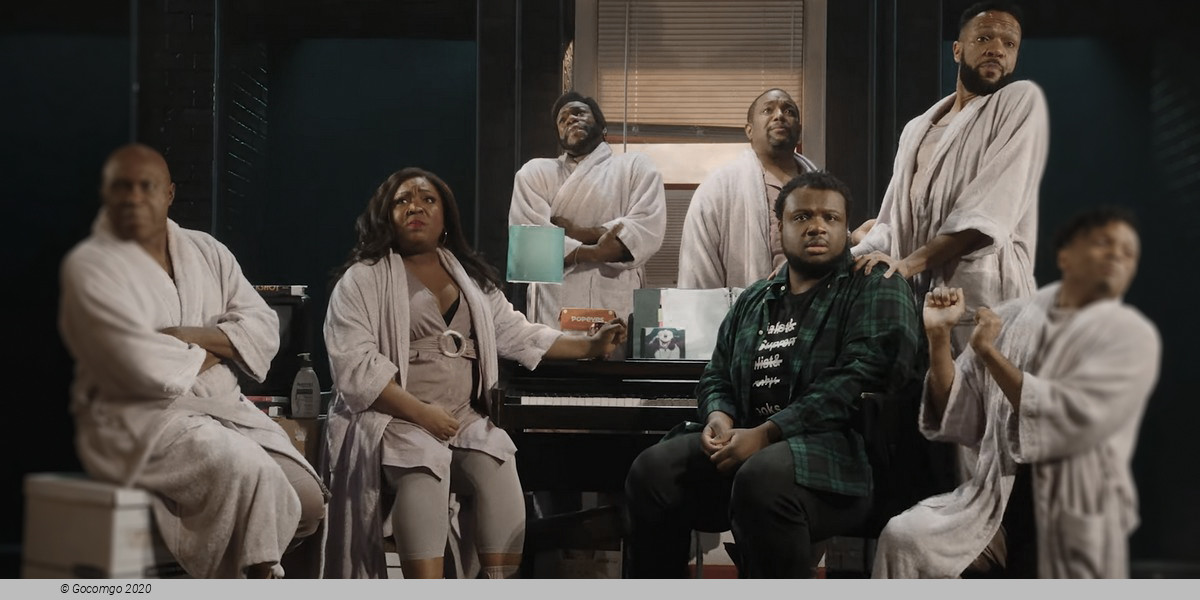
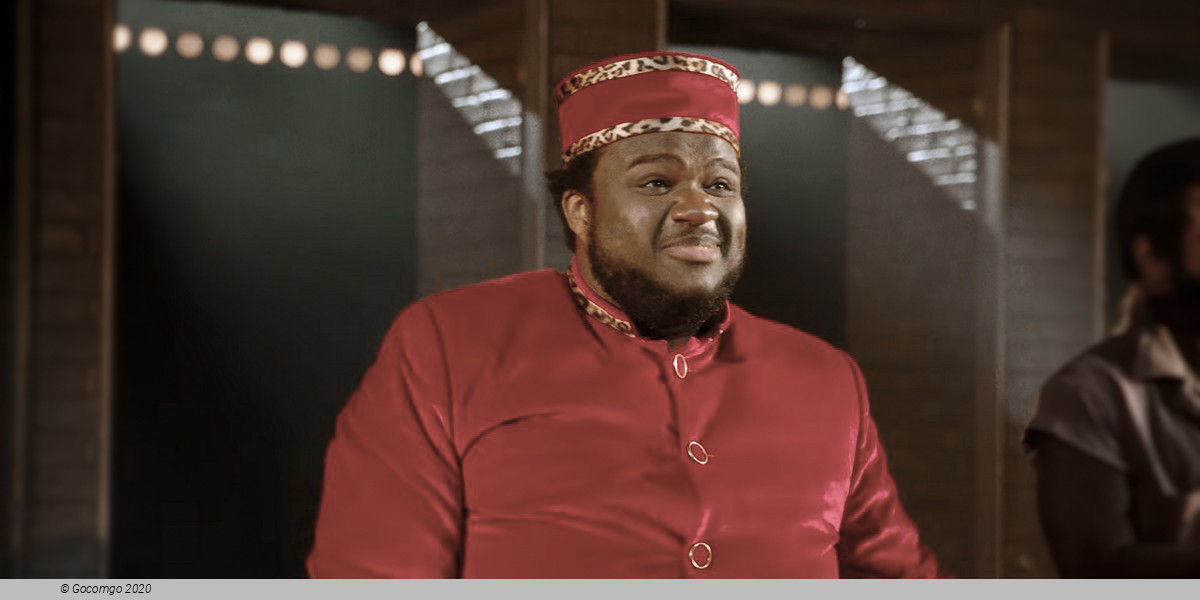
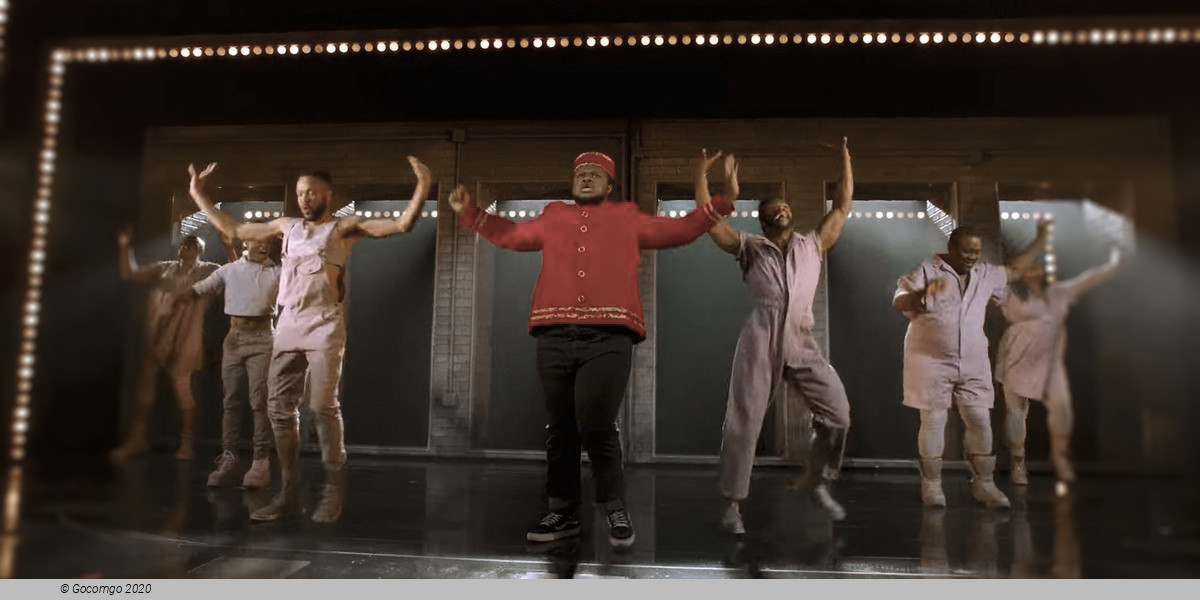
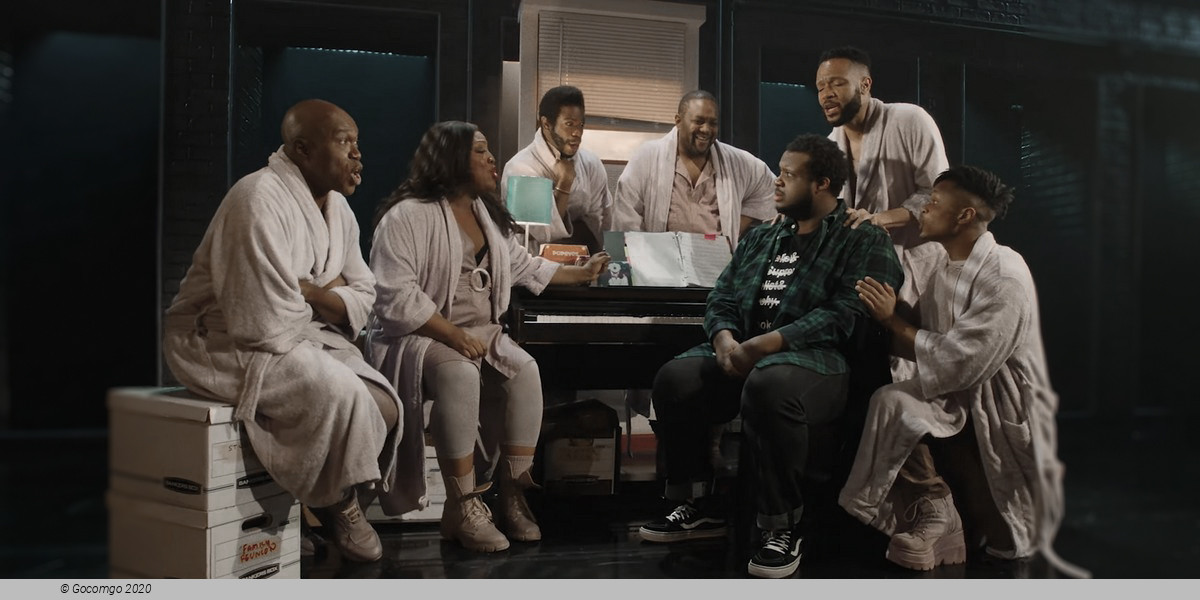
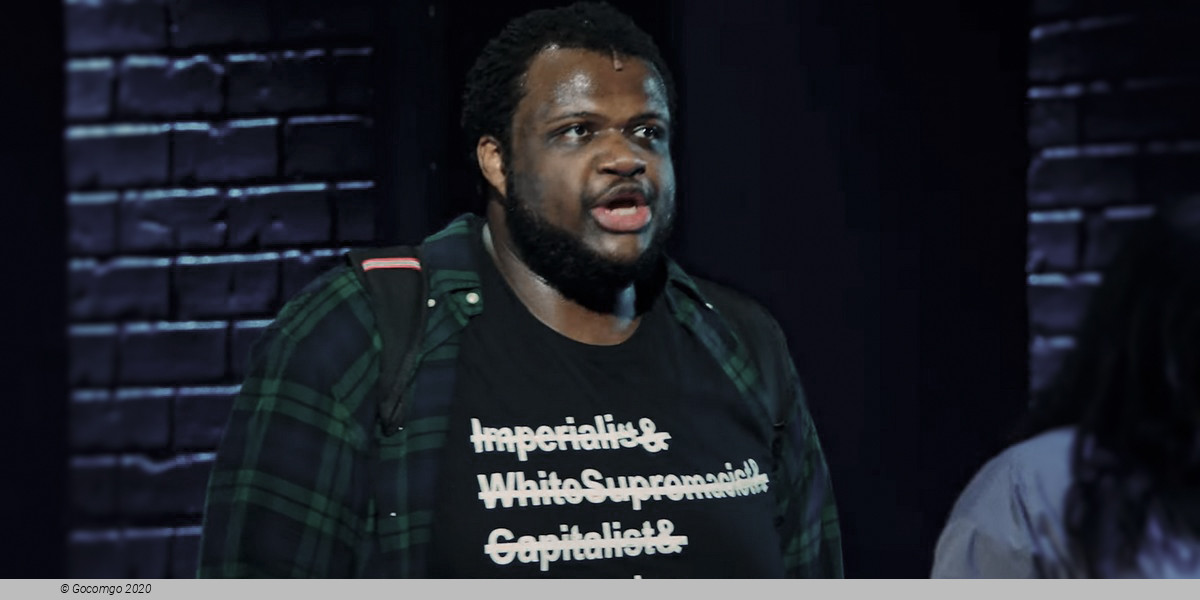
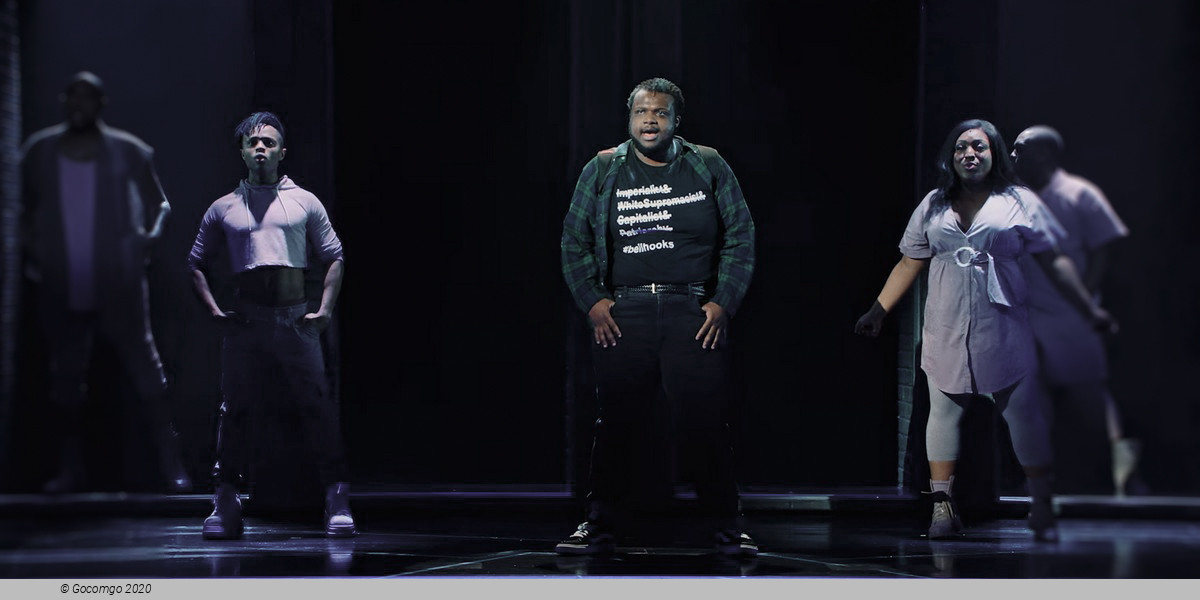
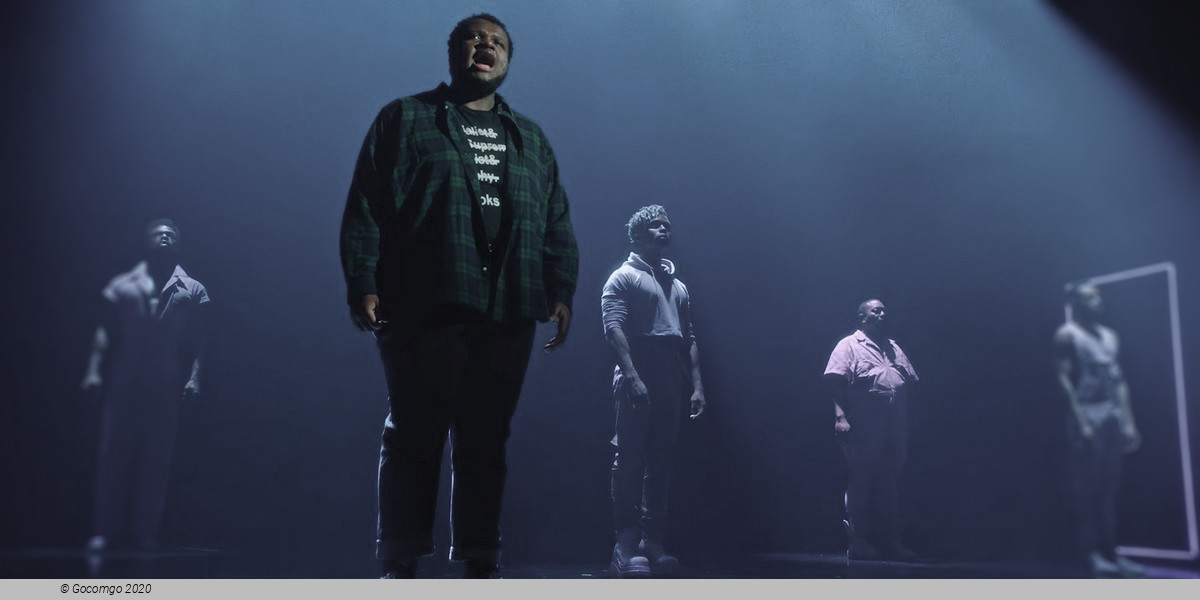
 149 West 45th Street
149 West 45th Street